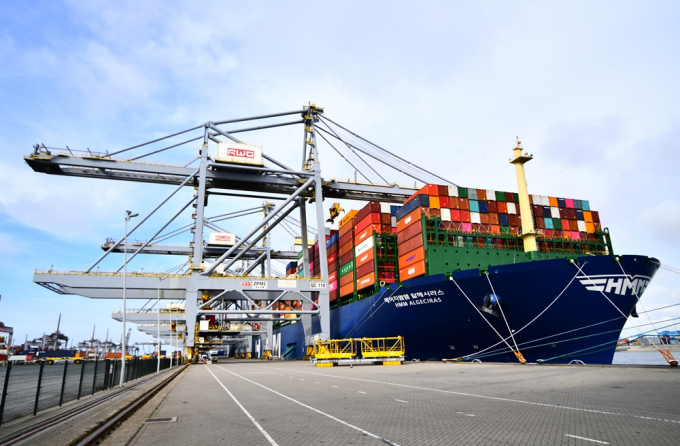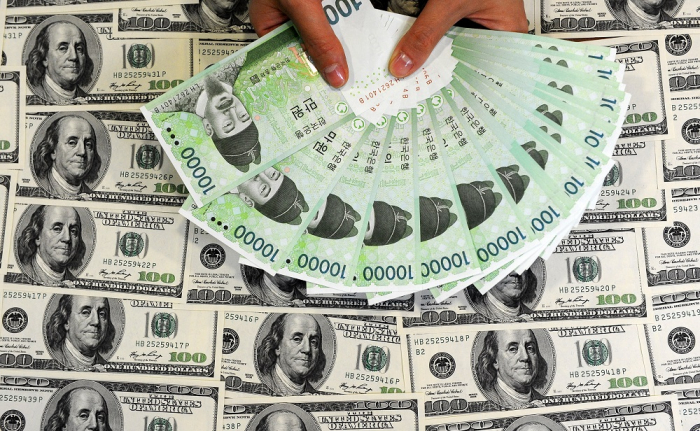Economy
ADB cuts Korea’s 2023 growth outlook as trade in deficit for sixth month
Korea faces growing risk of stagflation, a mix of slowing growth and high inflation, analysts say
By Sep 21, 2022 (Gmt+09:00)
3
Min read
Most Read
LG Chem to sell water filter business to Glenwood PE for $692 million


Kyobo Life poised to buy Japan’s SBI Group-owned savings bank


KT&G eyes overseas M&A after rejecting activist fund's offer


StockX in merger talks with Naver’s online reseller Kream


Mirae Asset to be named Korea Post’s core real estate fund operator



The Asian Development Bank (ADB) has slashed its 2023 growth outlook for the South Korean economy, citing daunting global risks, as the country is heading for its longest period of trade shortfalls in 25 years.
In its revised growth forecasts for 26 Asian member countries, the ADB said on Wednesday it now expects the Korean economy to grow 2.3% next year, a 0.3 percentage point lower than its July projection of 2.6% expansion.
The Manila-based regional bank maintained its growth outlook for Korea, Asia's fourth-largest economy, at 2.6%.
Its downward revision comes just a few days after the Organization for Economic Cooperation and Development (OECD) lowered its 2023 forecast for Korea’s economic growth to 2.2% from its previous 2.5%. For this year, it revised up its growth projections for Korea to 2.8% from its June expectations for a 2.7% rise.
The ADB's 2022 growth outlook for Korea is the same as that of the Bank of Korea (BOK), but higher than the central bank’s projection of 2.1% for next year.
The ADB said it now expects its 46 member countries to grow 4.9% on average next year, compared to its earlier growth forecast of 5.2%.

“Stronger-than-expected monetary tightening by major economies, the prolonged war between Russia and Ukraine, and China's deeper-than-expected economic downturn will serve as downside economic risks for the Asian region,” the ADB said in a statement.
GLOOMIER OUTLOOK
The gloomier 2023 forecasts by the OECD and ADB for the Korean economy come as China – Korea’s top export destination – continues to place millions of citizens under renewed lockdown while major central banks around the world, including the US Federal Reserve, vow to strengthen their tighter monetary bias to fight inflation even at the cost of a global slowdown.
“For the first six months, the Korean economy wasn’t that bad, but conditions are certainly heading for the worse,” said a Korean government official.
Analysts said the Korean economy faces a growing risk of stagflation – a mix of slowing growth and high inflation – due to heightened external uncertainty.
Government data show Korea’s headline inflation eased in August for the first time in seven months, but inflationary pressure remains high given the higher global energy prices and the weakening Korean currency, which hovers around multi-year lows.
The ADB retained its 2022 and 2023 inflation forecasts for Korea at 4.5% and 3%, respectively.

TRADE DEFICIT IN UGLY SHAPE
According to Korea Customs Service data released on Wednesday, Korea’s exports fell 8.7% in the first 20 days of September from the same period a year earlier due largely to the four-day Chuseok holiday, which started on Sept. 9 this year.
The country’s imports for the 20 days rose 6.1% on the year, resulting in a trade deficit of $4.1 billion.
If the current trend continues, Korea will post a trade deficit for the sixth straight month in September, the first time to post monthly deficits for that long in 25 years.
Mounting trade shortfalls are threatening to push the won even further lower to test the 1,400 threshold to the dollar.
The Korean won is the worst-performing Asian currency with its value down more than 14% against the greenback so far this year.
Write to Byung-Uk Do at dodo@hankyung.com
In-Soo Nam edited this article.
More to Read
-
 EconomyKorea inflation slows, but BOK may still hike interest rates
EconomyKorea inflation slows, but BOK may still hike interest ratesSep 02, 2022 (Gmt+09:00)
2 Min read -
 Central bankBOK chief: S.Korea won't keep pace with Fed’s interest rate hikes
Central bankBOK chief: S.Korea won't keep pace with Fed’s interest rate hikesAug 29, 2022 (Gmt+09:00)
3 Min read -
 Central bankBOK delivers fourth straight rate hike as inflation persists
Central bankBOK delivers fourth straight rate hike as inflation persistsAug 25, 2022 (Gmt+09:00)
3 Min read -
 EconomyKorea trade deficit jumps as chip exports fall on Aug. 1-10
EconomyKorea trade deficit jumps as chip exports fall on Aug. 1-10Aug 12, 2022 (Gmt+09:00)
2 Min read -
 EnergyKorea's petroleum product exports hit record-high $28 bn in H1
EnergyKorea's petroleum product exports hit record-high $28 bn in H1Jul 26, 2022 (Gmt+09:00)
2 Min read
Comment 0
LOG IN


